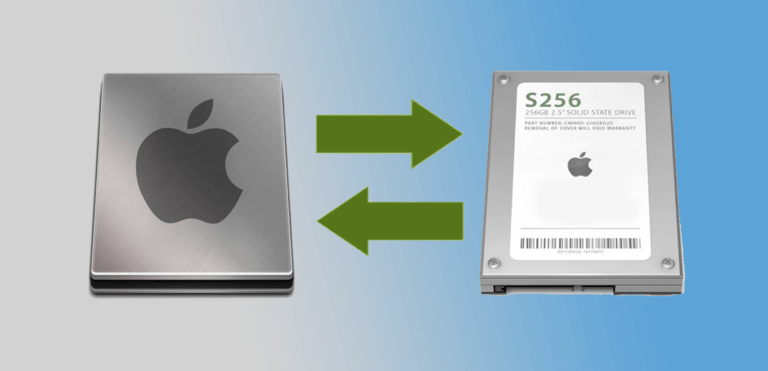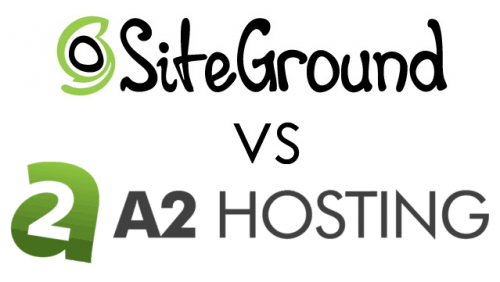100% Solution [pii_email_968de7f36e8e5476feff] Outlook Error
Are you getting the error [pii_email_968de7f36e8e5476feff] on your Outlook app while opening your emails? No worries, we have …
How to Fix [Pii_Email_84423918fca5fbb65988] Error
[Pii_Email_84423918fca5fbb65988] is a consequence of duplicate user accounts in the Outlook application. It could occur if you have …
How Do I Clone My Mac Hard Drive to SSD?
Unlike the Windows operating system, Mac OS is much more stable and robust. It doesn’t get infected or …
Fix Outlook [Pii_Email_841b43fada260254c8d3] Error 2 Min
Pii_Email_841b43fada260254c8d3 is a system-related error on the Microsoft Outlook app that occurs when the server or system files …
1 Min Fix Outlook [pii_email_52ea00a2cfde8b03cbfb] Error
This blog will help you fix Outlook [pii_email_52ea00a2cfde8b03cbfb] error code so that you can send messages/emails. Adhere to …
Best way to Fix Error pii_email_096d854470c8a6a62b16
How to Fix error pii_email_096d854470c8a6a62b16 Code is a sign on Outlook that something went wrong with the connection …
Digital Ocean Web Hosting – Is it worth it or not?
DigitalOcean Hosting Review Well, I will not start this piece yapping about something that you already know and …
Siteground vs A2 hosting Review
We have fully tested two big hosting companies Siteground vs A2 hosting for every point then write this …
Best Hostinger Vs Siteground Comparison 2023
Hostinger Vs Siteground Comparison Who is Best? Well, while developing a website it’s crucial to decide on web …
Fix Outlook [pii_email_cec533c68387c6e324ca] Error in 2 Min
Outlook error code [pii_email_cec533c68387c6e324ca] is a common issue for most computer users and it can appear due to …
Best NameCheap Hosting Review 2023
We have fully tested Namecheap web hosting on more than 20 websites then after writing these reviews. NameCheap …
What is [pii_email_e2a02837a25af225ec6e] & how to fix it?
Getting the [pii_email_e2a02837a25af225ec6e] Outlook error on your device while trying to receive or send emails is very common …
Cloudways Vs Siteground Compare in 2024
About Cloudways Vs Siteground The Main Features of Cloudways Hosting Pricing: Cloudways Vs Siteground Reddit The pricing is …
Bluehost Web Hosting Review
Rating 4.7/5Prices start from: $2.95 / mo. Reg. Price $7.99 – Get 64% Off! About Bluehost Web …
Hostinger Web Hosting Review 2023
Hostinger web hosting review 2023 About Hostinger Hostinger start in 2004, now a day’s 29 million user have …
Bypass Geo-Restrictions Like a Boss: The Mobile Proxy Advantage
In an increasingly digital world, accessing content from anywhere has become both a necessity and a challenge due …
Bond Cleaning for Pet Owners: Overcoming the Extra Challenge
When the time comes to move out of a rented property, bond cleaning becomes a top priority for …
How to Select the Best Formation Service for Your LLC
LLC services simplify company formation and administration. They understand the specific LLC formation requirements and procedures in the …
Sustainable Jewelry: A Rising Trend
In recent years, there has been a growing awareness of the environmental and ethical impact of the fashion …
Web Development Unveiled: Navigating the Digital Frontier
The web development service company plays a pivotal role in today’s digital economy, offering essential services that range from …
Oakywood’s desk shelf: A masterpiece of workspace optimization
Forget everything you thought you knew about organizing your desk. Oakywood is redefining the game with its innovative …
Visualizing the Future: How 3D Rendering is Transforming Architecture and Design
In the fast-evolving world of architecture and design, staying ahead of the curve is essential. With the advent …
Stylish Men’s Floral Long Sleeve Shirts: A Fashion Statement
When it comes to men’s fashion, floral prints have been making a strong comeback in recent years. Among …
Understanding Mailer Envelopes: A Comprehensive Guide
In today’s fast-paced world, effective communication is crucial, and one of the essential tools in this regard is …
The Impact of Reliable Hosting on Customer Interaction Efficiency
The hosting service behind your website plays a pivotal role in shaping the user experience. Additionally, it influences …

![100% Solution [pii_email_968de7f36e8e5476feff] Outlook Error [pii_email_968de7f36e8e5476feff]](https://webhostingoffer.org/wp-content/uploads/2021/09/employee-3005501_640.jpg)
![How to Fix [Pii_Email_84423918fca5fbb65988] Error [pii_email_84423918fca5fbb65988]](https://webhostingoffer.org/wp-content/uploads/2021/04/pii_email_84423918fca5fbb65988-768x431.png)

![Fix Outlook [Pii_Email_841b43fada260254c8d3] Error 2 Min Fix Outlook Pii_Email_841b43fada260254c8d3 Error 2 Min](https://webhostingoffer.org/wp-content/uploads/2021/05/Fix-Outlook-Pii_Email_841b43fada260254c8d3-Error-2-Min.jpg)
![1 Min Fix Outlook [pii_email_52ea00a2cfde8b03cbfb] Error [pii_email_52ea00a2cfde8b03cbfb]](https://webhostingoffer.org/wp-content/uploads/2021/07/Fix-Pii_Email_7c0c5a4c0f8ed133647f-Outlook-Error-in-5-Min-768x444.png)




![Fix Outlook [pii_email_cec533c68387c6e324ca] Error in 2 Min Fix Outlook [pii_email_cec533c68387c6e324ca] Error in 2 Min](https://webhostingoffer.org/wp-content/uploads/2021/06/pii_email_cec533c68387c6e324ca-768x444.png)

![What is [pii_email_e2a02837a25af225ec6e] & how to fix it? [pii_email_e2a02837a25af225ec6e]](https://webhostingoffer.org/wp-content/uploads/2021/05/how-to-fix-pii_email_f25b7c2ce219e167e8f5-768x380.png)











